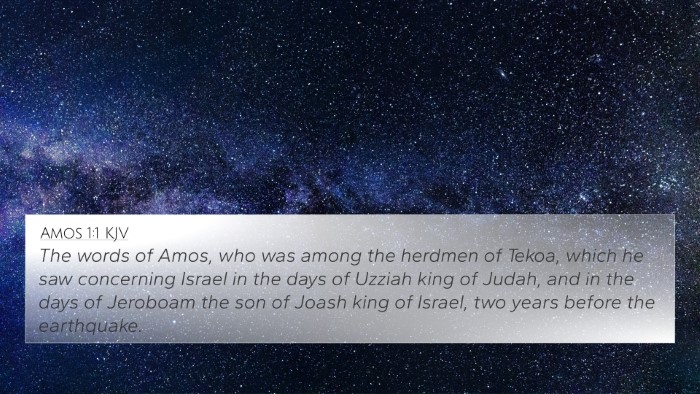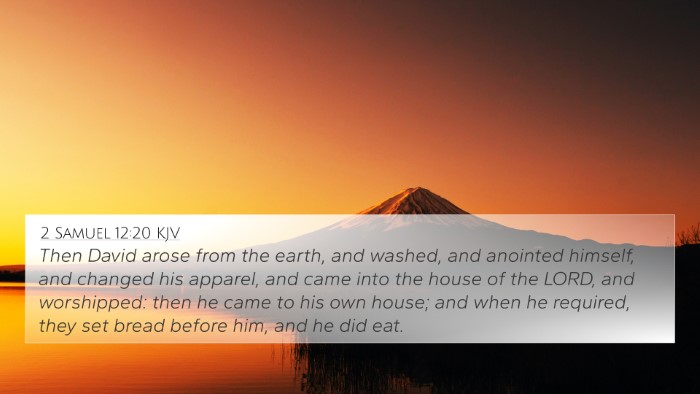Understanding 2 Samuel 14:2: Insights from Classic Commentaries
The verse 2 Samuel 14:2 states:
"And Joab sent to Tekoah, and fetched from thence a wise woman, and said unto her, I pray thee, feign thyself to be a mourner, and put on now mourning apparel, and anoint not thyself with oil, but be as a woman that had a long time mourned for the dead."
Summary of Insights
This verse provides a critical moment in the narrative of 2 Samuel, highlighting themes of strategy, deception, and the complexity of human emotion. Joab, the commander of David's army, initiates a plan to bring Absalom back to Jerusalem after his exile, employing a woman from Tekoah to present a fabricated story that would appeal to King David’s emotions. Various commentaries shed light on the significance of this event:
- Matthew Henry: Henry emphasizes the shrewdness of Joab's counsel and the wisdom of the woman. He notes that her ability to feign mourning illustrates the lengths to which individuals go to achieve specific ends, suggesting a reflection on the nature of disguise and manipulation in human relationships.
- Albert Barnes: Barnes interprets this action as a calculated move by Joab to reconnect the estranged father and son. He points out that the wise woman symbolizes the importance of using wisdom in communication, particularly in matters of reconciliation and restoration of relationships.
- Adam Clarke: Clarke provides insight into the historical and cultural context, indicating how mourning practices were deeply rooted in society. He also highlights the irony in Joab's manipulation, indicating that even in attempts to resolve conflict, deceptive practices can obscure genuine emotion and truth.
Thematic Connections
This verse resonates with broader themes within the Bible, encouraging readers to explore connections between Bible verses that reflect similar situations of deceit, reconciliation, and the complex emotional layers in human relationships. Below are suggested cross-references:
- 2 Samuel 13:38: Absalom flees after avenging his sister, setting the stage for the need of Joab's intervention.
- 2 Samuel 14:30-31: David reacts to Joab's plan, indicating the outcome of the woman's involvement.
- 2 Samuel 12:13-14: David's previous sin with Bathsheba introduces the theme of consequence and repentance, which echoes throughout Absalom's story.
- Proverbs 11:3: Highlights the importance of integrity and truthfulness, contrasting against the woman’s deceitful pretense.
- Matthew 5:9: “Blessed are the peacemakers,” reflecting on the role of Joab as a peace-seeker despite his use of manipulation.
- Galatians 6:7: “A man reaps what he sows,” pointing to the eventual consequences of actions stemming from dishonesty and stratagem.
- Luke 8:17: “For nothing is hidden that will not be made manifest,” a reminder that truth ultimately prevails over cunning.
Inter-Biblical Dialogue
The narrative in 2 Samuel 14:2 forms part of a larger dialogue across scriptures, encouraging readers to engage in cross-referencing Biblical texts to uncover deeper meanings. The usage of a wise woman to mediate illustrates how wisdom can sometimes appear in unexpected forms. In exploring this idea, it’s valuable to consider additional verses:
- 1 Kings 3:16-28: The wisdom of King Solomon in resolving disputes reflects the theme of wise mediation.
- Matthew 7:24-27: The importance of building on a firm foundation, applicable in context to the actions of both Joab and David.
- James 3:17: Discusses the characteristics of wisdom that is from above, contrasting Joab's manipulative tactics.
Conclusion
The complexities of 2 Samuel 14:2 allow for rich exploration in comparative Bible verse analysis. Understanding the layers of Joab's manipulation, the woman's role, and the implications for David and Absalom leads to fruitful reflection on the nature of human interactions. Utilizing tools for Bible cross-referencing enhances this understanding, providing seekers of truth with comprehensive insights into the scriptural narrative.
By examining this verse alongside its interconnected scriptures, readers gain a holistic view of biblical themes such as forgiveness, the consequences of sin, and the search for peace through complex means. As such, cross-referencing Bible verses becomes an invaluable practice in uncovering these divine truths.














